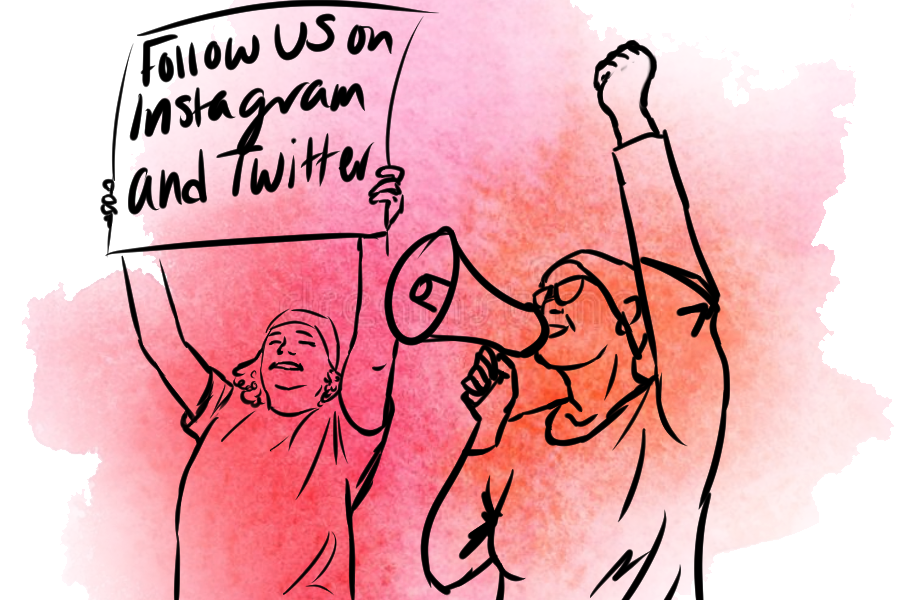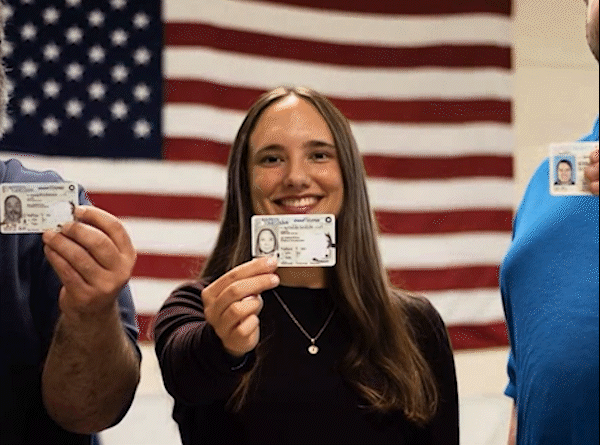Following a protest or protesting for followers?
Activism should be for more than just social media.
Photo by Juliet Burton
As social media becomes more prominent in our society, it is important to evaluate your aims as a protester.
As I began to march down the street in uptown Charlotte, surrounded by people of all ages, races, backgrounds and sexual identities, I wanted to feel empowered, but instead I felt embarrassed.
I went to the Charlotte Women’s March to protest our president, stand up against the sexism that still rings violently through our society, demand an end to the oppression that people of color face in our society, use my voice to make a difference and exercise my right to protest. But when I got there, something just felt wrong.
As a young white woman, something that I constantly work on doing is recognizing my privilege. While the system is slighted against me as a female, I know that it is worse for women who don’t look like me. Women of color and LGBTQ+ women get treated differently by society than I do. There is no argument there. They don’t see themselves reflected in our society like I do and they are discriminated against.
Not only do they have to deal with the sexism that I have experienced and will continue to experience, they also have to deal with racism. Because of these things, when I decided on attending the march, I decided on attending the march for a cause much greater than myself.
Unfortunately, although I expected it, that’s not what everyone was thinking about when they showed up to the march on Saturday. For many, while there was a concern with the blatant injustice in our society, like Trump, abortion rights and equal pay, the biggest concern seemed to be borrowing a cute sign from a fellow protester and making sure to snap the cutest pic. This was especially embarrassing for me because it seemed to be an issue mainly with young white girls, who should be even more aware of the injustices in our society and know that many of the issues that they are protesting are ones that they aren’t subjected to.
Protests are an opportunity to contribute to a cause and make a change. A legitimate protest has an importance that’s so much greater than the number of likes on an Instagram post.
This underlying trend of activism for the sake of social media popularity is not just applicable to the Women’s March, it goes beyond that. For example, the Charlotte Pride festival comes every year and a phenomenon similar to what I experienced at the Charlotte Women’s March seems to occur there as well, in this case with straight people going for pictures adorned in glitter and rainbow attire. Again, the issue is not that people doing this do not believe in the cause of the movement, it’s that they are exploiting it, most of the time without even realizing it. This unknown exploitation undermines the cause as a whole and weakens the credibility of the movement. This is why its is so important that you check your intentions before you get involved.
Of course, social media is a platform for our free speech and opinions, and sharing an experience can inspire others and help a cause, so in no way am I saying that nobody should ever post anything from a protest on social media. The topic of conversation should be a question of intent and motivation.
No matter what your situation is, you have to make sure that you have a purpose behind your activism. Did you ask yourself “why am I going to this?” or “what am I trying to change?” or even “what can I do to make sure I don’t make this experience all about me?” I know it’s hard to ask yourself; of course nobody wants to think of themselves as self absorbed or overly privileged, but if you can’t check yourself and be honest to yourself, then there might be a problem there. You might be an activist for your feed instead of a legitimate cause.
Your donation will support the student journalists of East Mecklenburg High School. Your contribution will allow us to purchase equipment and cover our annual website hosting costs.








